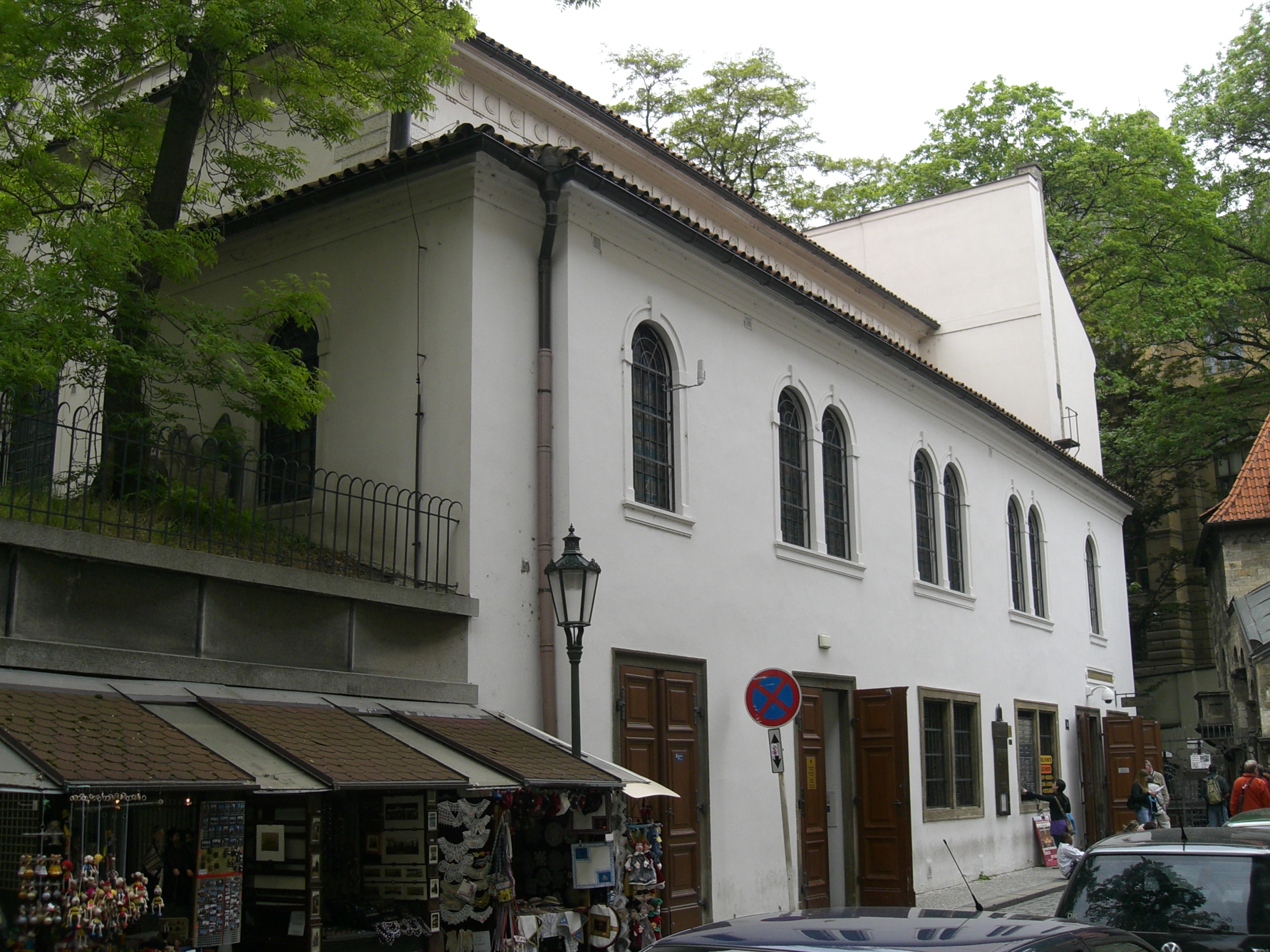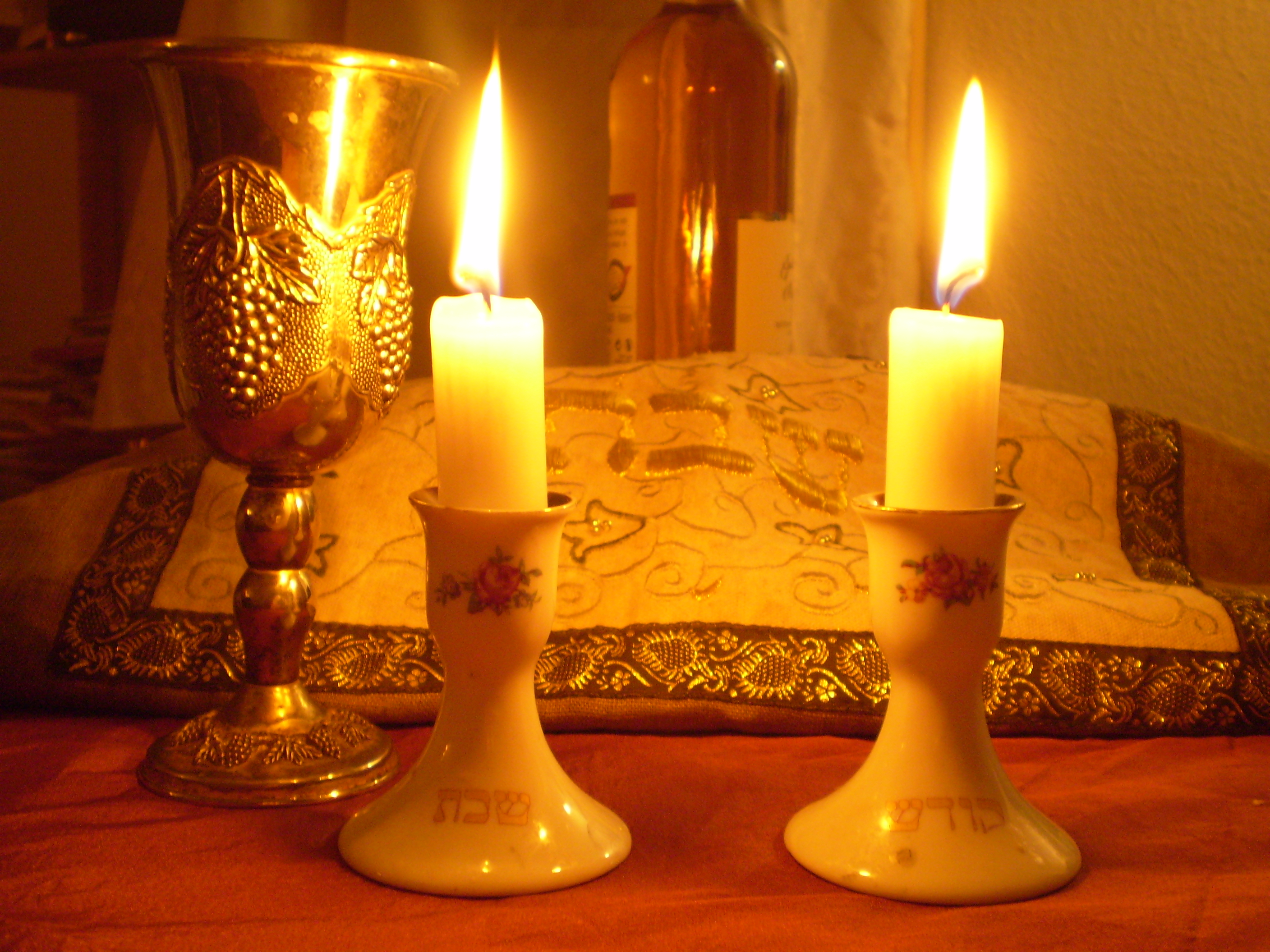|
Klausen Synagogue
The Klausen Synagogue (, ''kloyz shul'') is nowadays the largest synagogue in the former Prague Jewish ghetto and the sole example of an early Baroque synagogue in the ghetto. Today the synagogue is administered by the Jewish Museum in Prague. History Beginnings The interior today In 1570s a renowned businessman and benefactor of the ghetto, Mordechai Maisel, decided to build in the area of the present Klausen Synagogue a kloyz, or complex of buildings, probably including synagogues and a private Talmudic school. The famous Prague rabbi and scholar Maharal taught at this school. In 1689, the great fire of the ghetto burned down all the kloyzn and the synagogue is named after them. Shelomo Khalish Cohen, a rabbi of the burned down synagogue, which had been part of the complex, then initiated construction of a new synagogue in early baroque style at the site. In 1694, the building was finished and two years later monumental three-tiered aron ha-kodesh, the Torah Ark, was ... [...More Info...] [...Related Items...] OR: [Wikipedia] [Google] [Baidu] |
Prague
Prague ( ; cs, Praha ; german: Prag, ; la, Praga) is the capital and largest city in the Czech Republic, and the historical capital of Bohemia. On the Vltava river, Prague is home to about 1.3 million people. The city has a temperate oceanic climate, with relatively warm summers and chilly winters. Prague is a political, cultural, and economic hub of central Europe, with a rich history and Romanesque, Gothic, Renaissance and Baroque architectures. It was the capital of the Kingdom of Bohemia and residence of several Holy Roman Emperors, most notably Charles IV (r. 1346–1378). It was an important city to the Habsburg monarchy and Austro-Hungarian Empire. The city played major roles in the Bohemian and the Protestant Reformations, the Thirty Years' War and in 20th-century history as the capital of Czechoslovakia between the World Wars and the post-war Communist era. Prague is home to a number of well-known cultural attractions, many of which survived the ... [...More Info...] [...Related Items...] OR: [Wikipedia] [Google] [Baidu] |
Jewish Festivals
Jewish holidays, also known as Jewish festivals or ''Yamim Tovim'' ( he, ימים טובים, , Good Days, or singular , in transliterated Hebrew []), are holidays observed in Judaism and by JewsThis article focuses on practices of mainstream Rabbinic Judaism. Karaite Judaism#The calendar, Karaite Jews and Samaritans#Samaritanism, Samaritans also observe the biblical festivals, but not in an identical fashion and not always at exactly the same time. throughout the Hebrew calendar. They include religious, cultural and national elements, derived from three sources: biblical ''mitzvot'' ("commandments"), rabbinic mandates, and the history of Judaism and the State of Israel. Jewish holidays occur on the same dates every year in the Hebrew calendar, but the dates vary in the Gregorian. This is because the Hebrew calendar is a lunisolar calendar (based on the cycles of both the sun and moon), whereas the Gregorian is a solar calendar. General concepts Groupings Certain terms ... [...More Info...] [...Related Items...] OR: [Wikipedia] [Google] [Baidu] |
Synagogue Service
Jewish prayer ( he, תְּפִלָּה, ; plural ; yi, תּפֿלה, tfile , plural ; Yinglish: davening from Yiddish 'pray') is the prayer recitation that forms part of the observance of Rabbinic Judaism. These prayers, often with instructions and commentary, are found in the ''Siddur'', the traditional Jewish prayer book. Prayer, as a "service of the heart", is in principle a Torah-based commandment. It is not time-dependent and is mandatory for both Jewish men and women. However, the rabbinic requirement to recite a specific prayer text does differentiate between men and women: Jewish men are obligated to recite three prayers each day within specific time ranges (''zmanim''), while, according to many approaches, women are only required to pray once or twice a day, and may not be required to recite a specific text. Traditionally, three prayer services are recited daily: * Morning prayer: ''Shacharit'' or ''Shaharit'' (, "of the dawn") * Afternoon prayer: ''Mincha' ... [...More Info...] [...Related Items...] OR: [Wikipedia] [Google] [Baidu] |
Synagogue
A synagogue, ', 'house of assembly', or ', "house of prayer"; Yiddish: ''shul'', Ladino: or ' (from synagogue); or ', "community". sometimes referred to as shul, and interchangeably used with the word temple, is a Jewish house of worship. Synagogues have a place for prayer (the main sanctuary and sometimes smaller chapels), where Jews attend religious Services or special ceremonies (including Weddings, Bar Mitzvahs or Bat Mitzvahs, Confirmations, choir performances, or even children's plays), have rooms for study, social hall(s), administrative and charitable offices, classrooms for religious school and Hebrew school, sometimes Jewish preschools, and often have many places to sit and congregate; display commemorative, historic, or modern artwork throughout; and sometimes have items of some Jewish historical significance or history about the Synagogue itself, on display. Synagogues are consecrated spaces used for the purpose of Jewish prayer, study, assembly, and r ... [...More Info...] [...Related Items...] OR: [Wikipedia] [Google] [Baidu] |
Torah
The Torah (; hbo, ''Tōrā'', "Instruction", "Teaching" or "Law") is the compilation of the first five books of the Hebrew Bible, namely the books of Genesis, Exodus, Leviticus, Numbers and Deuteronomy. In that sense, Torah means the same as Pentateuch or the Five Books of Moses. It is also known in the Jewish tradition as the Written Torah (, ). If meant for liturgic purposes, it takes the form of a Torah scroll ('' Sefer Torah''). If in bound book form, it is called ''Chumash'', and is usually printed with the rabbinic commentaries (). At times, however, the word ''Torah'' can also be used as a synonym for the whole of the Hebrew Bible or Tanakh, in which sense it includes not only the first five, but all 24 books of the Hebrew Bible. Finally, Torah can even mean the totality of Jewish teaching, culture, and practice, whether derived from biblical texts or later rabbinic writings. The latter is often known as the Oral Torah. Representing the core of the Jewish spiri ... [...More Info...] [...Related Items...] OR: [Wikipedia] [Google] [Baidu] |
Judaism
Judaism ( he, ''Yahăḏūṯ'') is an Abrahamic, monotheistic, and ethnic religion comprising the collective religious, cultural, and legal tradition and civilization of the Jewish people. It has its roots as an organized religion in the Middle East during the Bronze Age. Modern Judaism evolved from Yahwism, the religion of ancient Israel and Judah, by the late 6th century BCE, and is thus considered to be one of the oldest monotheistic religions. Judaism is considered by religious Jews to be the expression of the covenant that God established with the Israelites, their ancestors. It encompasses a wide body of texts, practices, theological positions, and forms of organization. The Torah, as it is commonly understood by Jews, is part of the larger text known as the ''Tanakh''. The ''Tanakh'' is also known to secular scholars of religion as the Hebrew Bible, and to Christians as the " Old Testament". The Torah's supplemental oral tradition is represented by later texts s ... [...More Info...] [...Related Items...] OR: [Wikipedia] [Google] [Baidu] |
Minhag
''Minhag'' ( he, מנהג "custom", classical pl. מנהגות, modern pl. , ''minhagim'') is an accepted tradition or group of traditions in Judaism. A related concept, ''Nusach (Jewish custom), Nusach'' (), refers to the traditional order and form of the Jewish services, prayers. Etymology The Hebrew root N-H-G () means primarily "to drive" or, by extension, "to conduct (oneself)". The actual word ''minhag'' appears twice in the Hebrew Bible, both times in the same verse, and translated as "driving": Homiletically, one could argue that the use of the word ''minhag'' in Jewish law reflects its Biblical Hebrew origins as "the (manner of) driving (a chariot)". Whereas ''Halakha'' (law), from the word for walking-path, means the path or road set for the journey, ''minhag'' (custom), from the word for driving, means the manner people have developed themselves to travel down that path more quickly. The present use of ''minhag'' for custom may have been influenced by the Arabic ... [...More Info...] [...Related Items...] OR: [Wikipedia] [Google] [Baidu] |
Jewish Holidays
Jewish holidays, also known as Jewish festivals or ''Yamim Tovim'' ( he, ימים טובים, , Good Days, or singular , in transliterated Hebrew []), are holidays observed in Judaism and by JewsThis article focuses on practices of mainstream Rabbinic Judaism. Karaite Judaism#The calendar, Karaite Jews and Samaritans#Samaritanism, Samaritans also observe the biblical festivals, but not in an identical fashion and not always at exactly the same time. throughout the Hebrew calendar. They include religious, cultural and national elements, derived from three sources: biblical '' mitzvot'' ("commandments"), rabbinic mandates, and the history of Judaism and the State of Israel. Jewish holidays occur on the same dates every year in the Hebrew calendar, but the dates vary in the Gregorian. This is because the Hebrew calendar is a lunisolar calendar (based on the cycles of both the sun and moon), whereas the Gregorian is a solar calendar. General concepts Groupings Certain term ... [...More Info...] [...Related Items...] OR: [Wikipedia] [Google] [Baidu] |
World War II
World War II or the Second World War, often abbreviated as WWII or WW2, was a world war that lasted from 1939 to 1945. It involved the vast majority of the world's countries—including all of the great powers—forming two opposing military alliances: the Allies and the Axis powers. World War II was a total war that directly involved more than 100 million personnel from more than 30 countries. The major participants in the war threw their entire economic, industrial, and scientific capabilities behind the war effort, blurring the distinction between civilian and military resources. Aircraft played a major role in the conflict, enabling the strategic bombing of population centres and deploying the only two nuclear weapons ever used in war. World War II was by far the deadliest conflict in human history; it resulted in 70 to 85 million fatalities, mostly among civilians. Tens of millions died due to genocides (including the Holocaust), starvation, ma ... [...More Info...] [...Related Items...] OR: [Wikipedia] [Google] [Baidu] |
New Synagogue, Prague
New is an adjective referring to something recently made, discovered, or created. New or NEW may refer to: Music * New, singer of K-pop group The Boyz Albums and EPs * ''New'' (album), by Paul McCartney, 2013 * ''New'' (EP), by Regurgitator, 1995 Songs * "New" (Daya song), 2017 * "New" (Paul McCartney song), 2013 * "New" (No Doubt song), 1999 *"new", by Loona from '' Yves'', 2017 *"The New", by Interpol from ''Turn On the Bright Lights'', 2002 Acronyms * Net economic welfare, a proposed macroeconomic indicator * Net explosive weight, also known as net explosive quantity * Network of enlightened Women, a conservative university women's organization * Next Entertainment World, a South Korean film distribution company Identification codes * Nepal Bhasa language ISO 639 language code * New Century Financial Corporation (NYSE stock abbreviation) * Northeast Wrestling, a professional wrestling promotion in the northeastern United States Transport * New Orleans Lakefront Ai ... [...More Info...] [...Related Items...] OR: [Wikipedia] [Google] [Baidu] |
Great Court Synagogue
Great may refer to: Descriptions or measurements * Great, a relative measurement in physical space, see Size * Greatness, being divine, majestic, superior, majestic, or transcendent People * List of people known as "the Great" *Artel Great (born 1981), American actor Other uses * ''Great'' (1975 film), a British animated short about Isambard Kingdom Brunel * ''Great'' (2013 film), a German short film * Great (supermarket), a supermarket in Hong Kong * GReAT, Graph Rewriting and Transformation, a Model Transformation Language * Gang Resistance Education and Training Gang Resistance Education And Training, abbreviated G.R.E.A.T., provides a school-based, police officer instructed program that includes classroom instruction and various learning activities. Their intention is to teach the students to avoid gang ..., or GREAT, a school-based and police officer-instructed program * Global Research and Analysis Team (GReAT), a cybersecurity team at Kaspersky Lab *'' Great!'', a 20 ... [...More Info...] [...Related Items...] OR: [Wikipedia] [Google] [Baidu] |



.jpg)
.jpg)


